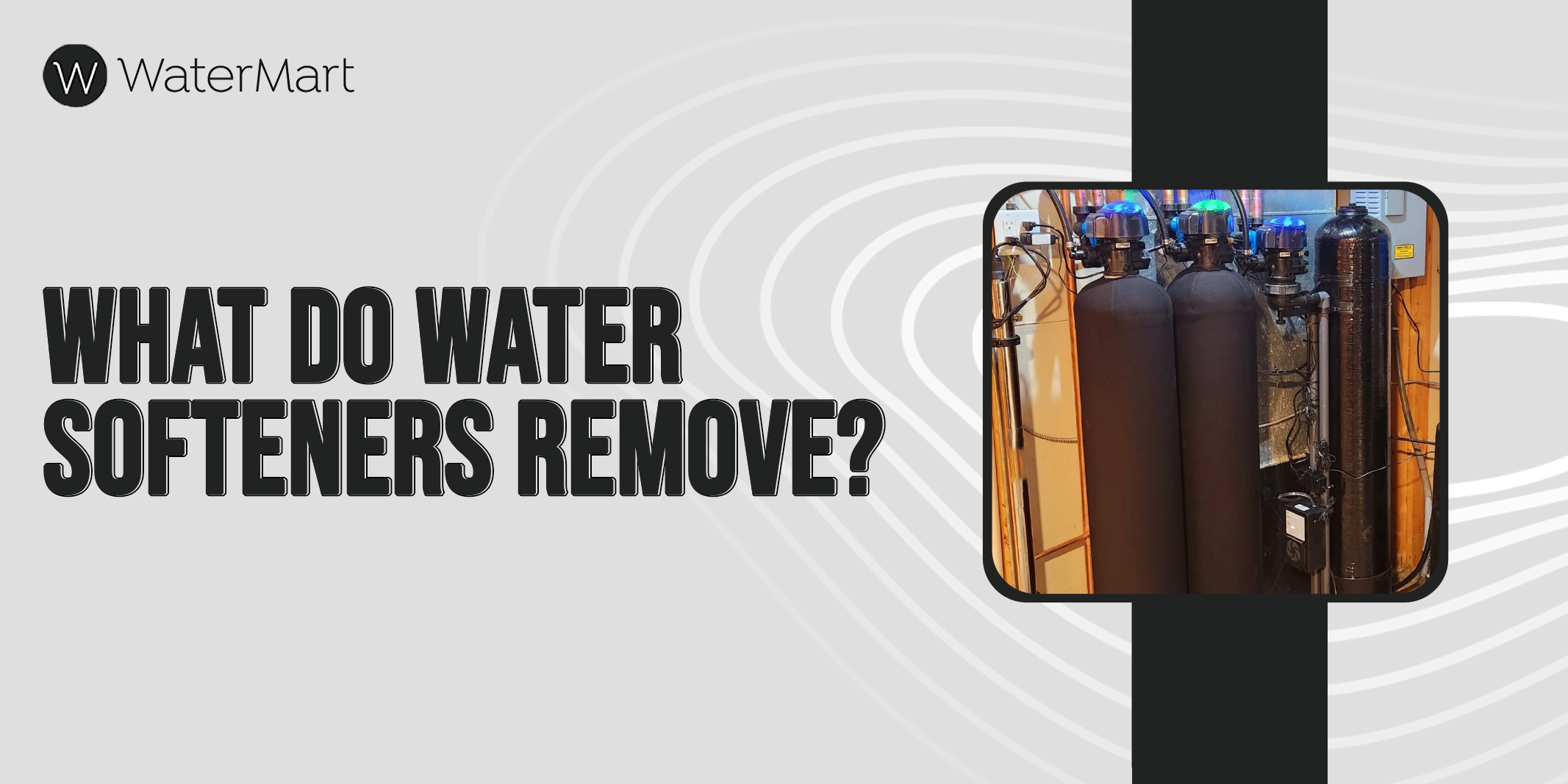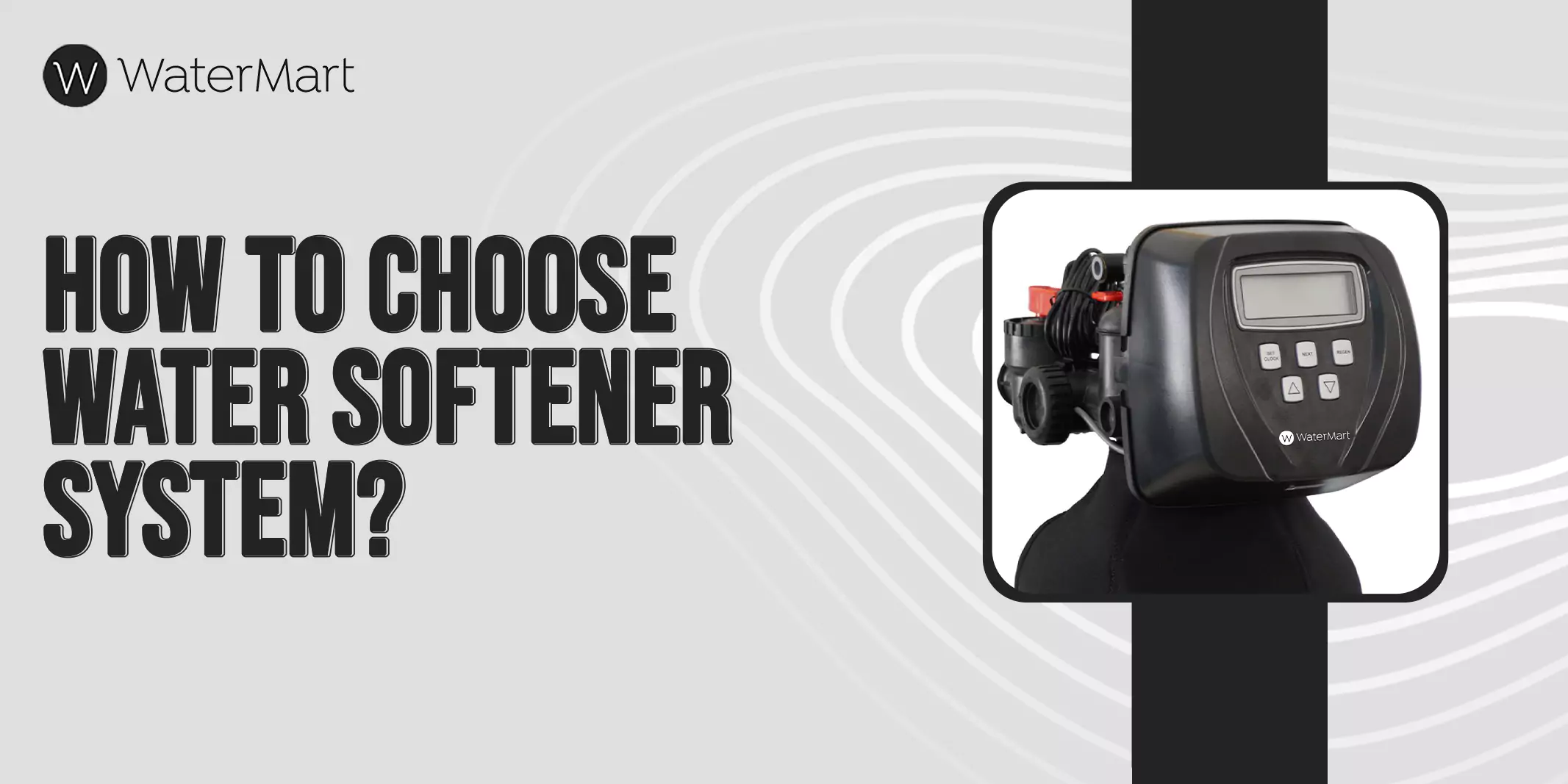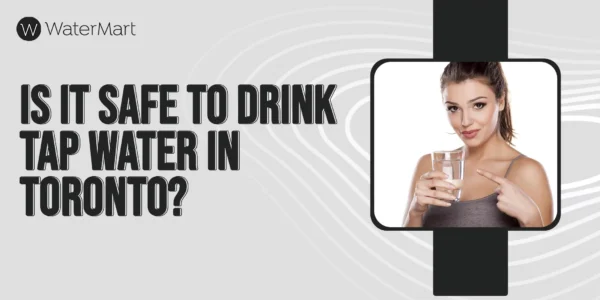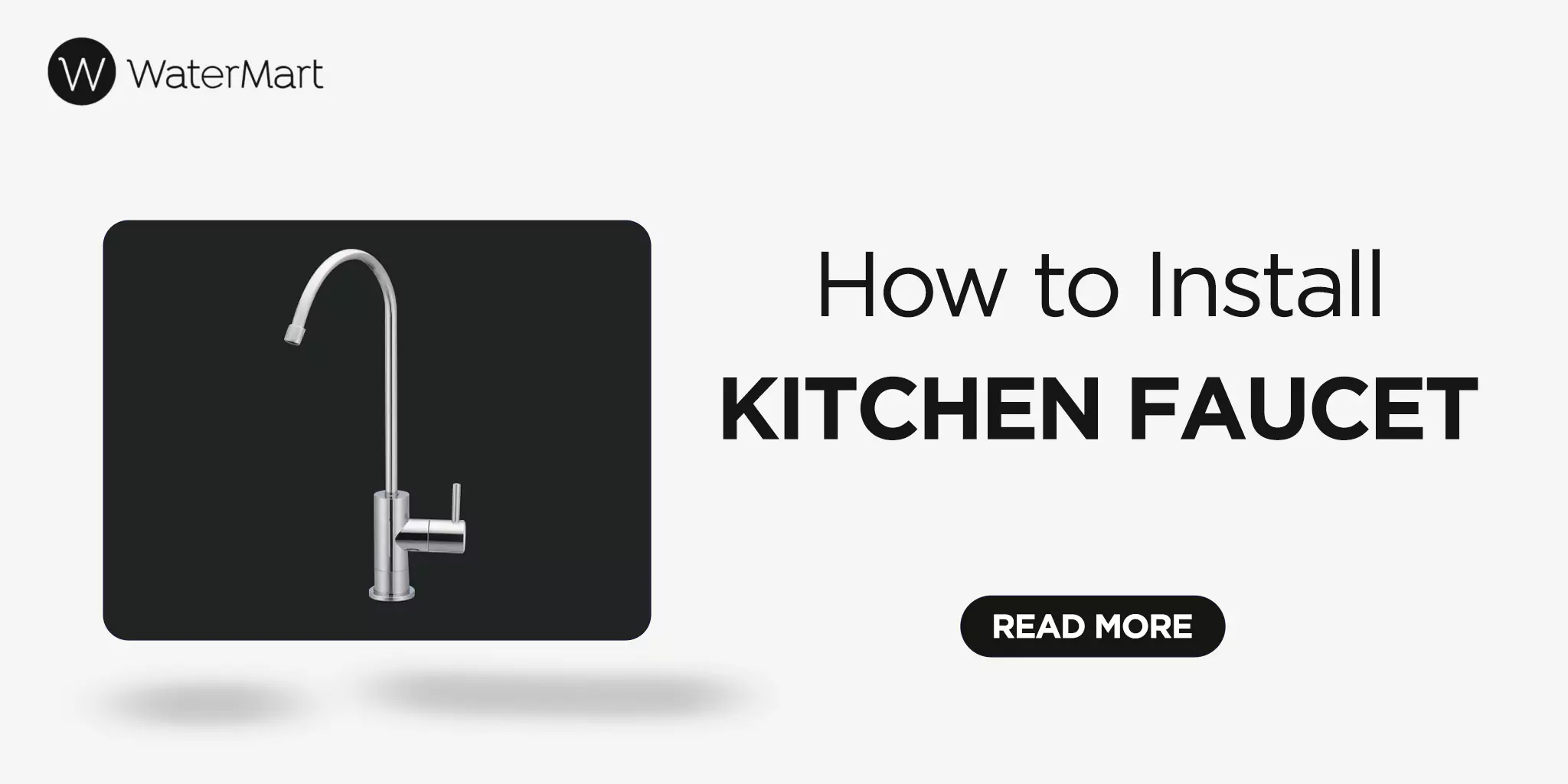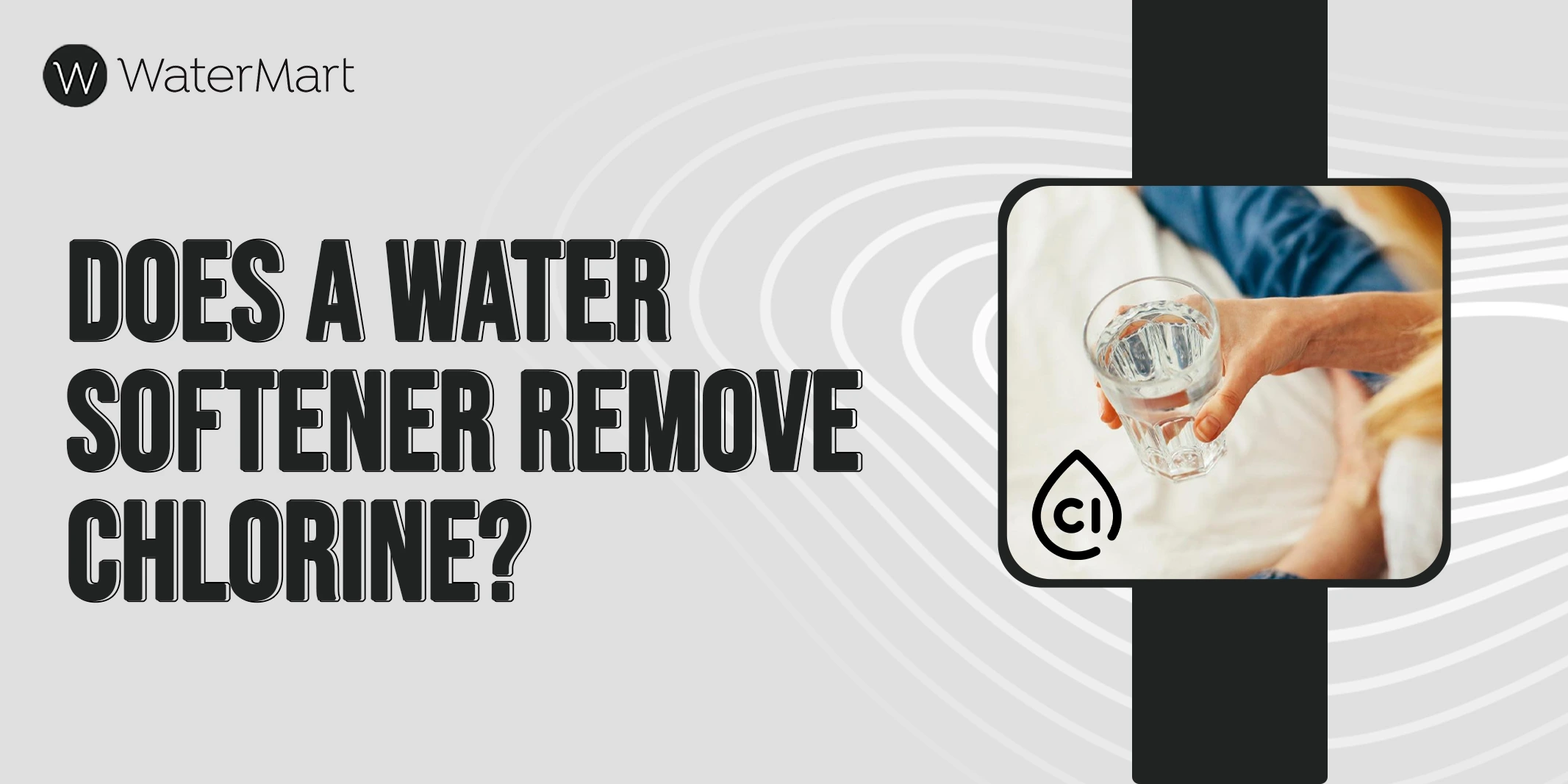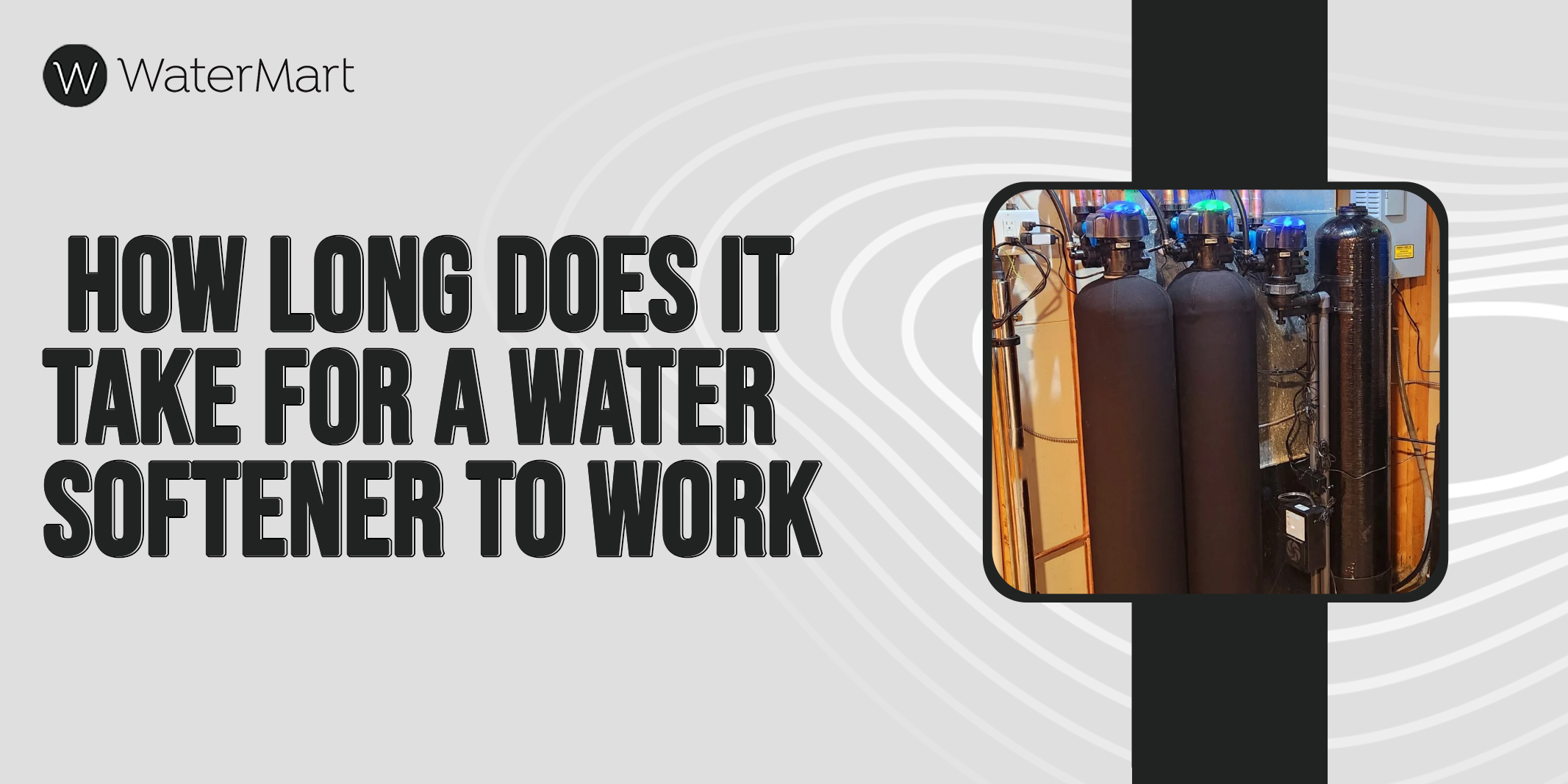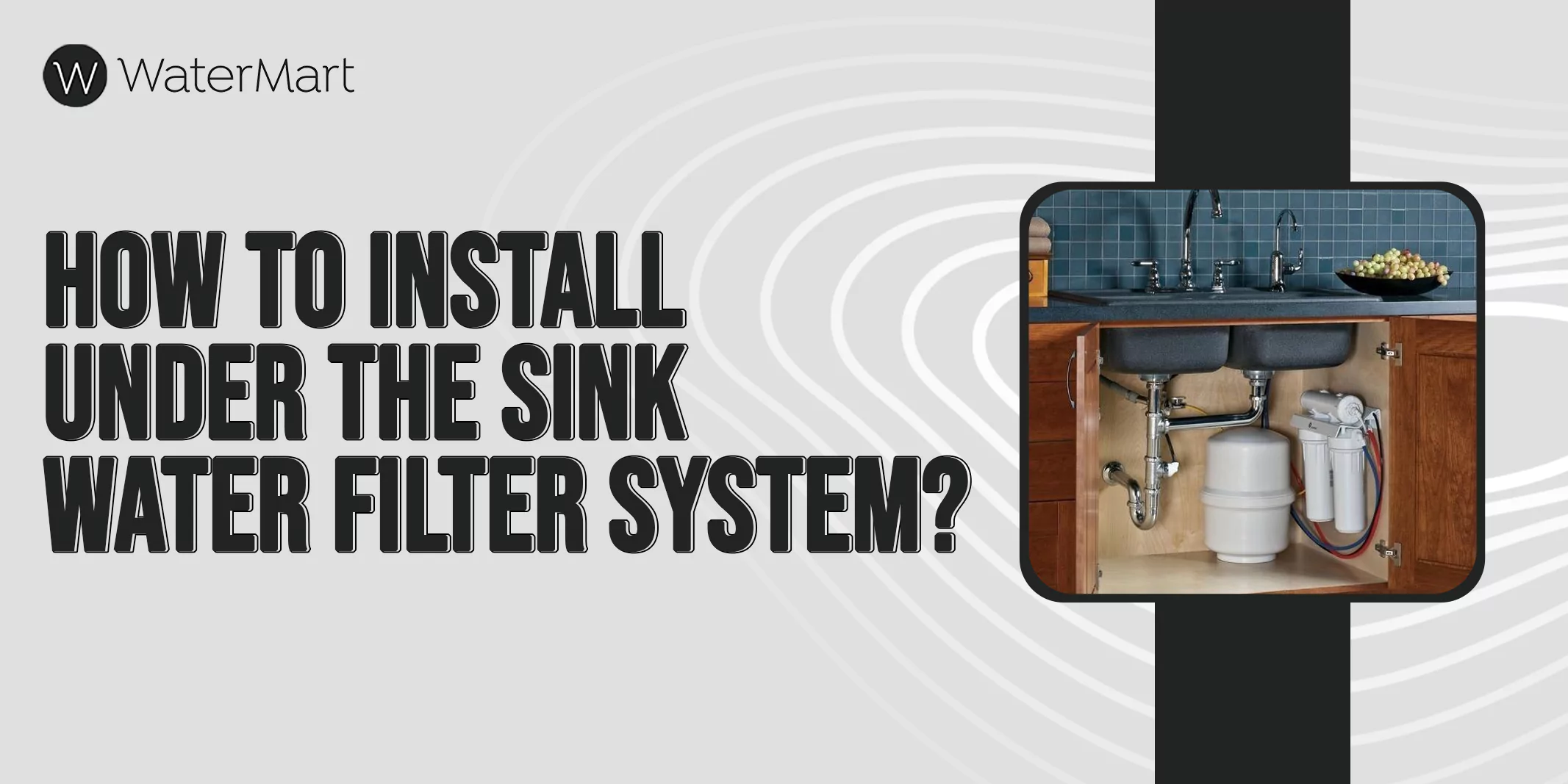Your cart is currently empty!
What Do Water Softeners Remove?: Guide to Hard Water Impurities
Thinking about getting a water softener and don’t know what do water softenrs remove, here are the complete water softeners’ working principles and the impurities they remove. Water softeners are resin beads-based ion exchange units that remove the hard minerals from the water, making it soft and usable for drinking and other household usage.
These hard minerals include calcium, magnesium, and other positively charged ions (cations) like iron and manganese.
The water softeners work on an ion exchange method in which, the resin beads trap the hard minerals and exchange them with the potassium and sodium ions in the water. If you are planning to get a water softener for the first time and want to know what water softeners remove, here is our complete guide.
What do water softeners remove, and how do they do it?
A water softener is actually the name given to a water filtration plant that uses an ion exchange method, with the help of resin media to remove all the hard particles from the water. As these hard particles increase the water’s hardness, removing them results in softening the water, so these filtration units are called water softeners.
The water softeners use an ion exchange method in which the resin bead media traps the hard minerals of the water and replaces them with sodium and potassium ions.
Does A Water Softener Remove Chlorine From Water?
Chlorine is an essential element that is added to water at the municipality level as a disinfectant in Canada. The water softeners don’t remove chlorine from hard water.
They function on ion exchange methods that remove hard particles of calcium, magnesium, iron, and manganese from the system replacing them with sodium and potassium ions.
The water coming to the homes is usually highly chlorinated, giving a bad smell with a rotten taste. If you have high amounts of chlorine in water, it remains untreated even after softening. Those who want to remove the chlorine from the water should use another carbon-based post-water filtration or such water softeners that use both technologies of removing hard particles followed by an activated carbon filter cycle to remove chlorine. Explore our detailed article on Does a Water Softener Remove Chlorine? for more information.
Do Water Softeners Remove Iron And Manganese?
Water softeners can remove small amounts of iron and manganese from hard water by trapping them in resin and replacing them with sodium and potassium ions. The combined removable amount is up to 5 mg/L. If you have a higher concentration of iron or manganese in water, use iron and manganese-specific filters instead. To get your water quality checked or have a consultation, contact us at WaterMart for complete guidance.
Do Water Softeners Remove Calcium?
Yes, water softeners remove calcium from water through the ion exchange process. Calcium ions, responsible for water hardness, are replaced with sodium or potassium ions as the water passes through the softener’s resin bed.
This method is designed to remove all calcium from the water, reducing hardness.
By removing calcium, water softeners prevent scale buildup in appliances and pipes, which improves the efficiency and lifespan and levels up the water quality for daily use.
Does Water Softening Remove Necessary Minerals and Nutrients?
No, water softeners don‘t remove all the necessary minerals from the water. They remove calcium, magnesium, and small amounts of iron and manganese. Though these minerals are necessary for the human body they don’t play much role while present in water. Humans take these minerals from their dietary resources and not from water. These minerals cause other problems while staying in the water. So their absence does not harm the human body.
How Do I Know My Water Is Hard Or Soft?
You can immediately run some DIY tests to know whether your water is hard or soft. The most common indications include a limescale (white cast) deposit around the showers, faucets, taps, and other sanitary fixtures. The soap, shampoo, and detergents become leatherless, you get stains on the dishes and your hands and hair get dry and shineless.
You can also add ⅓ soap in ⅔ amount of water in a bottle and shake it well. If you get a cloudy mixture with less or no bubbles, it means your water is hard. Furthermore, you can get the following tests to get your water hardness number.
- Taste (soft water tastes good and salty at times, hard water tastes more like minerals)
- Strip test
- Lab Test
Water Testing For Hardness And Quality
Whenever you move from one place to another, change your water resource from bottled water to municipal water, consider getting a detailed water testing report to ensure the quality of water.
It helps you get the right insights about the pH level, and the amount of fluorides, ammonia, chlorides, hard minerals, arsenic, iron, manganese, mercury, VOCs, and other harmful elements that can lower the water quality.
We at watermart are an insured and WSIB-compliant company that offers certified reports that comply with industry standards. You can get a free water testing service, to get a detailed report and a consultation about having a water treatment plant that meets your needs. Getting in touch with us can help you have a clear idea about your water quality condition and its solution.
Benefits Of Soft Water Filtered Water Softeners
You get many benefits from soft water over hard water including better health, skin, hair, and safety for your sanitary fixtures, heating elements, and dishwashers.
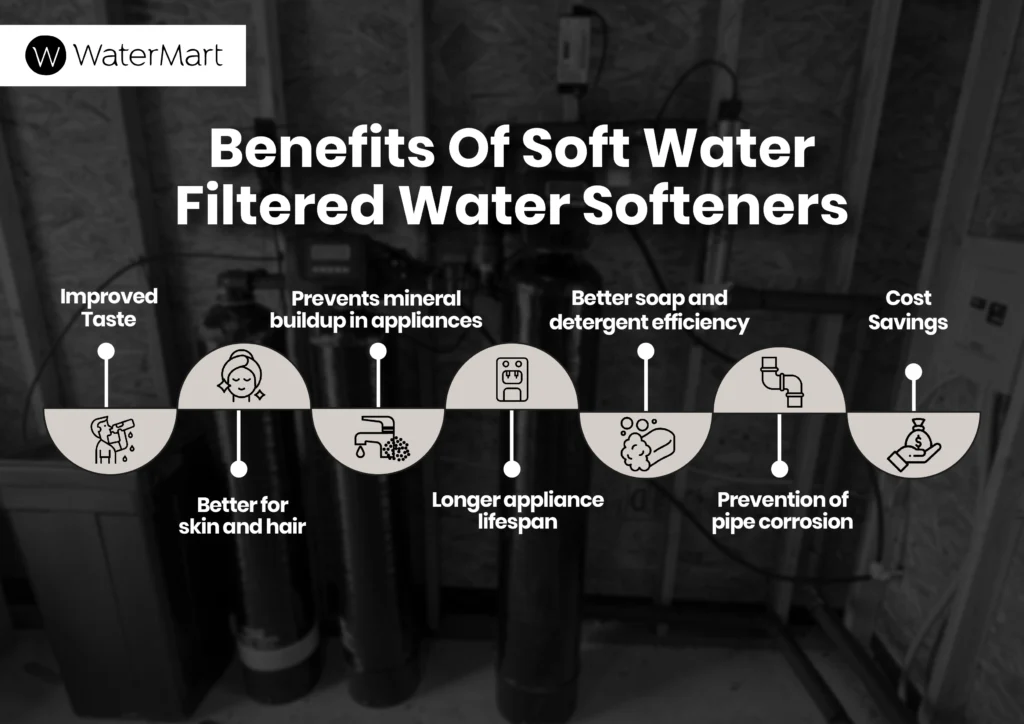
Improved taste
The taste of soft water is pleasant, healthy, smooth, and natural as compared to hard water. The hard water tastes stale, with a strong rusty flavor in it. Its taste is chalky, and because of the hard minerals, it might be bitter or chemical taste.
Better For Skin And Hair
When you use soft water for a shower, or washing hands, face, or hair, it does not leave any harsh impacts because of hard minerals. It is gentle on your skin, retains moisture, and keeps your skin and hair hydrated, moreover, your skin does not get dry,
Prevents Mineral Buildup In Appliances
Hard water contains, calcium and magnesium that make insoluble compounds after combining with bicarbonates. These insoluble compounds make lime scale and mineral buildups in the appliances, affecting the heating elements and other functional components in the appliances. When using soft water, there is minimal or no chance of mineral buildups, keeping your appliances damage-free.
Longer Appliance Lifespan
Soft water keeps your appliances high-performing, as there is no mineral buildup, and their cleaning and working are quite smooth. Moreover, you can save big money keeping your appliances protected. Your appliances like water heaters, washing machines, dishwashers, coffee machines, plumbing fixtures, faucets, and showers remain damage-free and need less maintenance.
Better Soap And Detergent Efficiency
Soft water helps you have scum-free leather that gives a thorough and gentle cleaning. You don’t get any scum made up of soap and hard minerals, and a good amount of leather helps you get enough cleaning, followed by ample rinsing that removes the soap residues gently. It does not keep any soap film on your skin, hair, or clothes, using less detergents and more cleaning with maximum hydration.
Prevention Of Pipe Corrosion
Hard minerals cause scale build-ups in pipes that absorb moisture and create the opportunity for abrasion and corrosion. Soft water does not come with such conditions, so it helps you preserve your pipes and keeps them corrosion-free.
Cost Savings
Small amounts of detergents/soaps/shampoos, no mineral water purchasing, no maintenance of jigs and fixtures, less corrosion, and less maintenance of your sanitary brings an ultimate cost saving to your life. You get healthy, drinkable water that is gentle to your skin and hair uses less shampoo and detergent, and does not impair your appliances. This one-time investment in water softener helps you save money in the long run.
Final Thoughts
Water softeners remove hard minerals like calcium, magnesium, and a few amounts of iron and manganese from the hard water, giving you soft water. Removal of hard minerals gives you healthy and clean water, is beneficial for your skin, hair, sanitary fixtures, appliances, and pipes, and tastes pleasant. If you have recently moved to a high hardness level water area, and don’t know how to check the hardness of your water, contact us at watermart. We are the pioneers of providing water treatment solutions including home water softener, whole house water filters, RO water filters, water quality testing services, and many others. You can call us today and get your quote or free consultation.
FAQs
Water softenrs have a few downsides like initial cost is high, there are environmental impacts and you may have a high rise of sodium in your water.
Water softeners remove hard minerals from water.
No, a water softener does not remove electrolytes ( minerals like sodium, calcium, magnesium, chlorides, and bicarbonates) but it changes their composition by removing hard minerals and adding sodium and potassium in it. So if you are concerned about the electrolytes, or have some medical conditions, use our reverse osmosis water filtration systems.
No, the water softeners don’t remove fluoride from the water. Their functioning is based on the removal of hard minerals.
